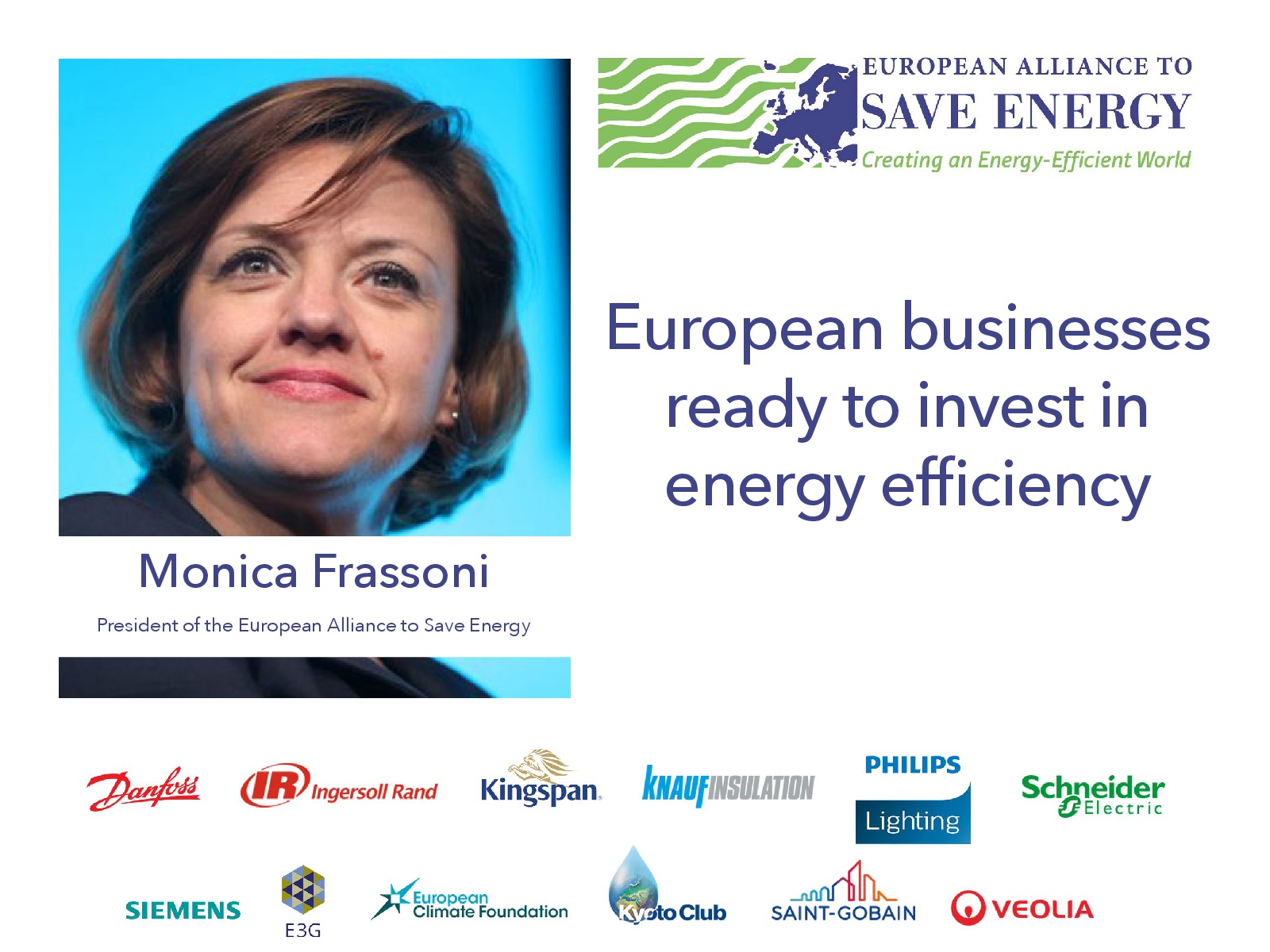
Monica Frassoni, President of the European Alliance to Save Energy
Monica Frassoni is an Italian politician and former MEP (1999-2009). During that time she was co-chair of the European Greens–European Free Alliance group in the European Parliament. Currently, she is co-President of the European Green Party.
Previously, she served for 10 years as an officer of the Greens group in the European Parliament and was Secretary General of the Young European Federalists. In late 2010, Monica took up the role of President of the European Alliance to Save Energy, which promotes energy efficiency across Europe.
In recent years, the European Union has led by example in terms of its commitments made to meet the targets of the Paris climate agreement. Europe’s energy system is now entering a decade of deepened efficiency, decarbonisation, digitisation and decentralisation, which will completely transform the way energy is generated, distributed and consumed. In this landscape, energy efficiency is the key enabler for a decarbonised Europe and is beneficial both to businesses and consumers.
The ongoing negotiations in the EU on the energy efficiency directive and the governance of the energy union regulation represent a unique opportunity to strengthen Europe’s role as a world leader in climate action. They can provide the policy framework to drive Europe’s energy transition, embodying the principle of energy efficiency first as a chief and indispensable step to decarbonise our economies. In the EU, 76% of the emission reductions needed to meet the Paris agreement should be reached through energy efficiency measures. In other words, without bold energy efficiency policies, it will be impossible to achieve our climate commitments.
From an investor and business perspective, these two pieces of legislation, if correctly designed, have the potential to provide a clear and positive signal to investors, banks and companies, and to increase the competitiveness of European industry, generate economic growth and create millions of jobs across the continent. Unfortunately, though, the negative stance on energy efficiency taken by many EU member states during the negotiations of this legislation, such as a call for no legally binding targets for efficiency and no recognition of the efficiency first principle, could severely hamper the capacity of the EU to deliver.
Clear signals
The private sector needs a clear political sign to invest in clean energy. Investments in energy efficiency typically create value by delivering multiple benefits, such as improved energy security, public health and air quality, and by supporting innovation and competitiveness. As the lion’s share of the required investment will have to come from the private sector, the EU should strengthen the regulatory framework for energy efficiency to stimulate private investment in climate-related projects on a large scale, as referred to in the Paris agreement.
Along the same lines, on May 2, 2018 the European Commission released the long-term budget proposals for the EU for after 2020. The Commission is proposing a total budget corresponding to 1.114% of European gross national income (GNI), the equivalent of €1.279 trillion for 2021 to 2027. This would be an increase from the 1.03% of GNI for the current budget and more or less cover the €13 billion annual gap that will be created when the UK leaves the EU under Brexit. The Commission’s proposal also suggests that all programmes funded by the EU take into account climate change, with a target of 25% of EU expenditure contributing directly to the region’s climate objectives.
These proposals go in the right direction, but the actual amounts that countries will be forced to spend on energy efficiency and other measures to tackle climate change are far too low to have the impact needed to meet Europe’s climate and energy objectives. The European Parliament has therefore proposed increasing the EU budget from 1.03% to 1.3% of GNI and increasing spending on climate action to 30%. We support this proposal and would also like to see criteria to exclude all investments in energy supply infrastructure that fail to pass the energy efficiency first principle.
EU member states, which will ultimately sign off on the budget, should not hesitate to accept these more ambitious proposals. Businesses are poised to invest in energy efficiency, but they will only throw themselves and their money whole-heartedly into the sector if political leaders set a fully enabling environment. Having the courage and the conviction to do this will ultimately benefit the economy, the environment and society at large.
Source: Foresight
